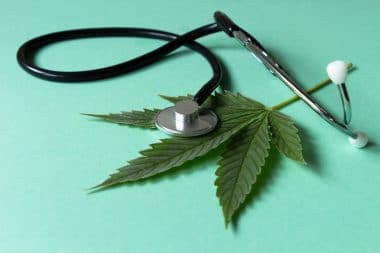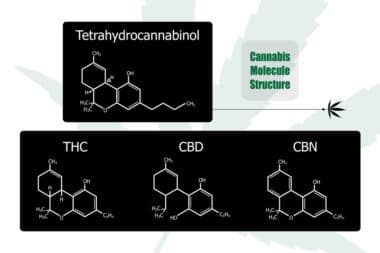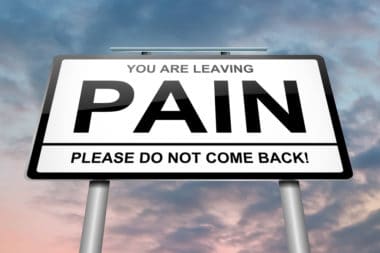Anxiety can be debilitating, and just like other mental disorders, it can also be lethal. As such, early detection and commitment to effective treatment modalities are very important aspects of an individual’s journey to recovery. And CBD for anxiety is definitely one of the most talked-about treatment options in recent years.
In addition, with the passage of the 2018 farm bill in the US and the full legalization of industrial hemp, we can expect to see and hear more of CBD as an alternative treatment to various illness and health conditions.
Currently, studies are still in the early stages in determining whether CBD can be a sustainable and effective treatment to anxiety, depression, stress, and other medical conditions. However, those who’ve tried CBD for anxiety can say that they’ve found a friend with CBD oil.
What is Anxiety?
The American Psychological Association (APA) defines anxiety as “an emotion characterized by feelings of tension, worried thoughts, and physical changes like increased blood pressure.” While anxiety can be a normal and healthy emotion, it can be beyond control at times that it becomes a medical disorder.
Anxiety is the most common mental disorder in the US, affecting 40 million people. However, only 36.9 percent of people with anxiety receive treatment. One reason may be the fact that it can be overlooked as a normal human emotion or reaction to daily stressors and happenings.
Once the feelings of apprehension, fear, nervousness, and worry become out of proportion that they already affect day-to-day living, it would be best to seek medical advice. The APA describes a person with an anxiety disorder as “having recurring intrusive thoughts or concerns.”
Types of Anxiety
The Diagnostic and Statistical Manual of Mental Disorders: Fifth Edition (DSM-V) classifies anxiety into several types — general anxiety disorder, panic disorder, specific phobia, agoraphobia, selective mutism in children, social anxiety disorder (social phobia), and separation anxiety disorder.
Previous editions of DSM also included obsessive-compulsive disorder (OCD), post-traumatic stress disorder (PTSD), and acute stress disorder under anxiety disorders. However, under DSM-5, these mental health difficulties are no longer grouped under anxiety.
Traditional Treatment for Anxiety
Treatments for anxiety include a combination of medications, psychotherapy, and behavioral therapy. Depression, alcohol dependence, and other health conditions can strongly affect one’s mental well-being. As such, treating anxiety disorders must wait until these health concerns, and/or other underlying conditions are brought under control.
Anxiety can be treated with a combination of the following medications, which include: benzodiazepines, beta-blockers, tricyclic antidepressants, general antidepressants, monoamine oxidase inhibitors (MAOIs), selective serotonin reuptake inhibitors (SSRIs), serotonin-norepinephrine reuptake inhibitors (SNRIs), tranquilizers, anticonvulsants, and more.
A doctor can prescribe a single medication or a combination of these drugs to find out what works best with the patient. The process can take months and even years, and during the process (or even after); the patient may experience a myriad of side effects.
Common Side Effects from Medications:
- Sleepiness/drowsiness
- Vertigo
- Lack of coordination
- Concentration and memory difficulties
- Slurred speech
- Digestion issues/Upset stomach
- Headaches
- Confusion
- Blurred vision
These are just some of the common and less serious side effects from the medications. More serious side effects are felt with some drug interactions, and in the event that an individual stops the medication or switches to another drug. Many of the prescribed anti-anxiety drugs lead to dependence, which means that a patient may eventually need to take a larger dose in order to experience the same effects as before. Coming off from the medications may also lead to serious side effects such as cardiac symptoms, seizures, increased anxiety, depression, confusion, difficulty with daily functions, and insomnia.
These side effects are similar to what an individual can experience during withdrawal from addictive substances. One might need to continue the drug just to prevent negative symptoms. Hence, we can say that beginning a traditional treatment plan requires serious consideration with the present symptoms and future problems that may arise.
Considering all of these negative symptoms, CBD may really shine as a potential alternative in treating anxiety in a more natural way and with the absence or fewer side effects.
What is Hemp-derived CBD Oil?
CBD, short for cannabidiol, is one of the active compounds (cannabinoids) that are unique to the cannabis plants. And since it is connected with cannabis, most people automatically establishes it as a compound that causes mind-altering effects. However, the truth is that CBD is not psychoactive, THC or tetrahydrocannabinol is. THC is the most prevalent compound found in the cannabis plants, and it is the compound that gives a “high.”
The two major sources of CBD are the hemp plants and marijuana plants. Hemp-derived CBD oil is extracted from industrial hemp. It is also referred to as CBD oil with less than 0.3% THC concentration. On the other hand, marijuana-derived CBD oil contains more than 0.3% TCH.
How Does CBD Oil Relieve Anxiety?
The human body has a built-in system designed for processing cannabinoids, and it’s called the endocannabinoid system or ECS. The ECS plays a major role in promoting homeostasis or balance within the body. It plays an important role in the regulation of sleep, mood, body temperature, immune responses, and more. Cannabidiol (CBD) interacts with and regulates the ECS. This means that CBD can help with the regulation of these functions, and consequently of the level of anxiety that a person might be experiencing at a given time.
In Conclusion
CBD can really help in treating anxiety, depression, and other mood disorders, and health conditions. But just to be on the safe side, it would be best to consult a physician before you start taking CBD oil for anxiety. If you are currently on anxiolytics (anti-anxiety drugs), it is much more important for you to seek your doctor’s advice since discontinuing your medications may worsen your symptoms or give you some withdrawal-like symptoms.
Do you have experience with CBD oil in treating anxiety or do you know someone who does? Feel free to share your experience in the comments below.









Reply